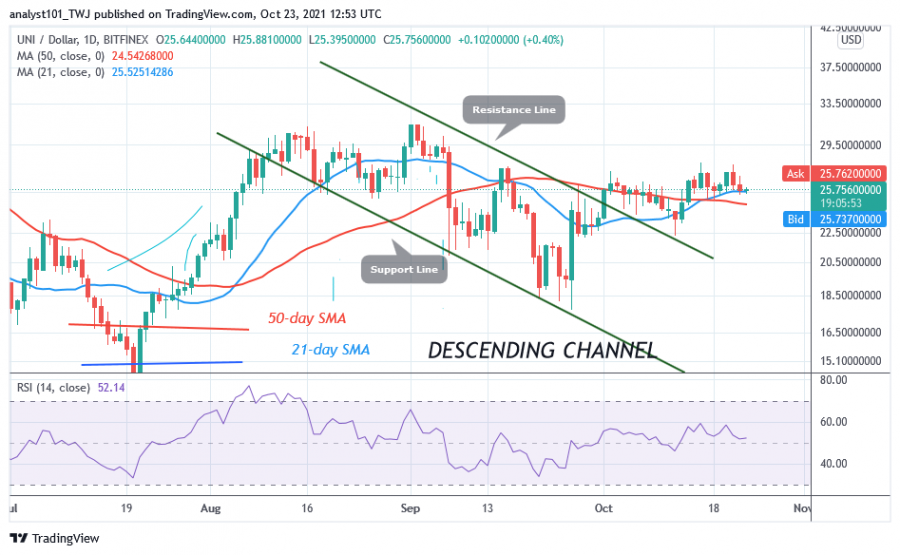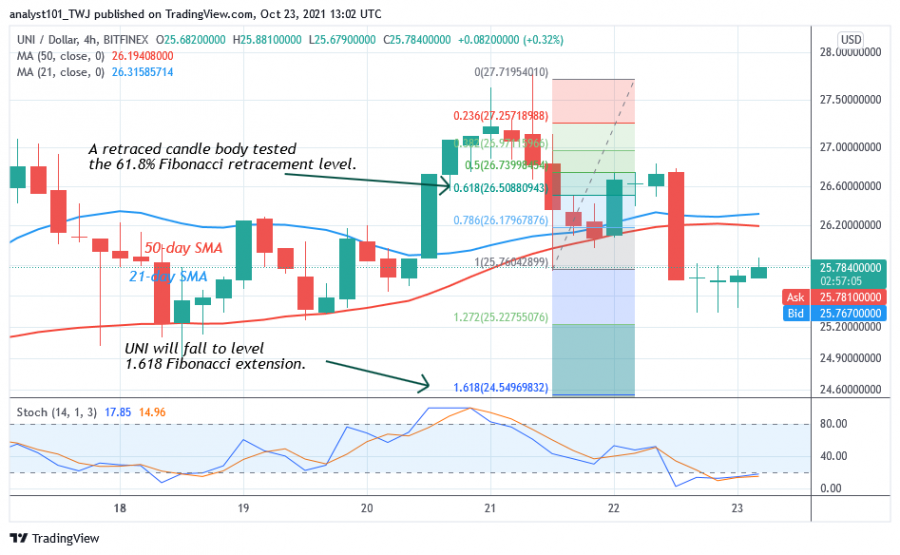Uniswap Slumps as Bears Attempt to Sink the Cryptocurrency to $22 Low
The price of Uniswap (UNI) has fallen above $25 support, or the 21-day moving average line, as buyers try to resume a new uptrend. Today, sellers are threatening to push the altcoin further down to the $22 low.
In previous price action, the bulls failed to keep the price above the $28 resistance zone. The market would have rallied above the high of $31 if the bulls had overcome this resistance zone. Nonetheless, the price of UNI is consolidating above the $25 support as bulls and bears decide on the next move. The cryptocurrency will continue its uptrend and retest the $28 resistance if the current support holds. On the other hand, if the bears break the current support, the altcoin will fall to a low of $22. This would also lead to another downward correction as the cryptocurrency is trading in the bearish trend zone.
Uniswap indicator reading
UNI has fallen to level 51 on the Relative Strength Index for period 14. It indicates that there is a balance between supply and demand. The bears are trying to undercut the moving averages, which makes the altcoin fall into the downtrend zone. The cryptocurrency is below the 20% range of the daily stochastic. This means that UNI has fallen into oversold territory. Buyers are expected to emerge to push prices higher.
Technical indicators:
Major Resistance Levels – $55.00 and $57.00
Major Support Levels – $30.00 and $28.00
What is the next direction for Uniswap?
On the 4-hour chart, UNI/USD is in a downtrend. The price of UNI has fallen below the moving averages and has reached the low of $25. Meanwhile, on October 21, a candlestick tested the 61.8% Fibonacci retracement level. The retracement suggests that UNI will fall to the Fibonacci extension level of 1.618 or $24.54.
Disclaimer. This analysis and forecast are the personal opinions of the author and are not a recommendation to buy or sell cryptocurrency and should not be viewed as an endorsement by Coin Idol. Readers should do their own research before investing funds.
Source: Read Full Article




